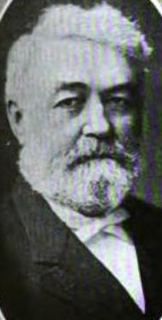A Quote by Alexis de Tocqueville
As one digs deeper into the national character of the Americans, one sees that they have sought the value of everything in this world only in the answer to this single question: how much money will it bring in?
Related Quotes
Good description is a learned skill, one of the prime reasons why you cannot succeed unless you read a lot and write a lot. It’s not just a question of how-to, you see; it’s also a question of how much to. Reading will help you answer how much, and only reams of writing will help you with the how. You can learn only by doing.
Money has always been a particular problem for revolutionaries and anti-capitalists. What will money look like 'after the revolution'? How will it function? Will it exist at all? It's hard to answer the question if you don't know what money actually is. Proposing to eliminate it entirely seems utopian and naive.
If you ask a living teacher a question, he will probably answer you. If you are puzzled by what he says, you can save yourself the trouble of thinking by asking him what he means. If, however, you ask a book a question, you must answer it yourself. In this respect a book is like nature or the world. When you question it, it answers you only to the extent that you do the work of thinking an analysis yourself.
The task that has fallen to us as Americans is to move the conscience of the world, to keep alive the hope and dream of freedom. For if we fail or falter, there'll be no place for the world's oppressed to flee to. This is not a role we sought. We preach no manifest destiny. But like the Americans who brought a new nation into the world 200 years ago, history has asked much of us in our time. Much we've already given; much more we must be prepared to give.
The problem in America as far as actors are concerned - and it's probably true in other fields, as well - is that they don't value people who are older or talented. I don't think ability means anything. How much money you have or how much money you can make for them are the only things they seem to care about or understand.
We can each sit and wait to die, from the very day of our births. Those of us who do not do so, choose to ask - and to answer - the two questions that define every conscious creature: What do I want? and What will I do to get it? Which are, finally, only one question: What is my will? Caine teaches us that the answer is always found within our own experience; our lives provide the structure of the question, and a properly phrased question contains its own answer.








































